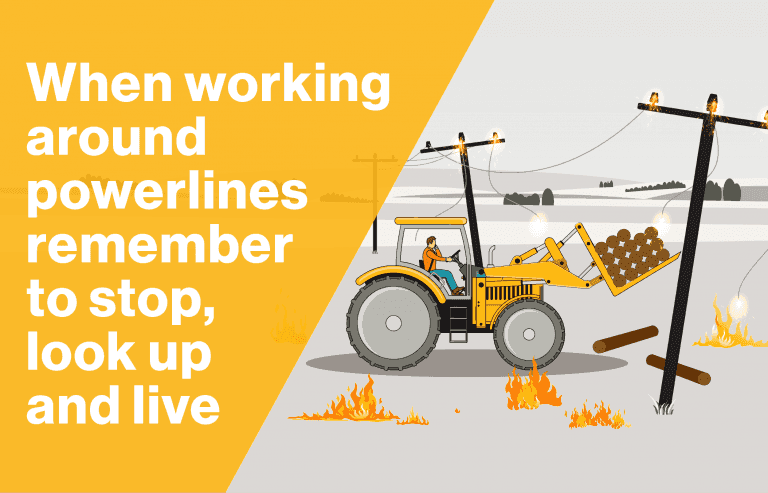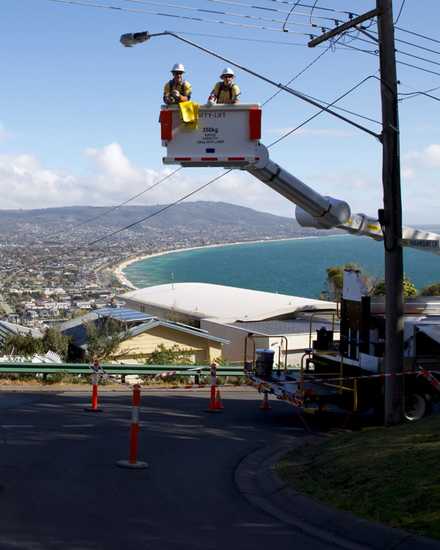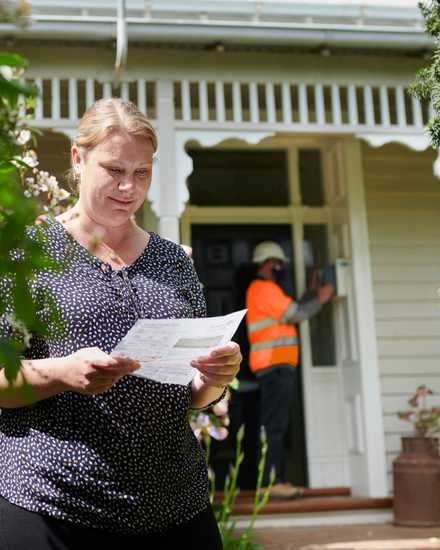Electrical emergencies
Know what to do
Fallen powerlines
Strong winds, vehicle accidents and falling trees can cause powerlines to become dislodged from their attachment point. Powerlines that have fallen to the ground should always be treated as live. Live lines can cause death or injury, even if a person does not touch the conductor directly.
If you see a fallen powerline stay well clear – ideally distance yourself by at least 10 metres and call us to report an issue on 132 099.

Powerlines on vehicles
If a powerline has fallen on a vehicle, it’s safest for the occupants to remain inside the vehicle. Please report the incident urgently to Emergency Services on 000 and United Energy on 132 099, so that power can be switched off in the area.
In some circumstances it’s not safe to remain inside a vehicle that has come into contact with a powerline – for example, if the vehicle has caught fire. In these cases, occupants should jump from the vehicle, landing with their feet together, avoiding touching both the ground and metal parts of the vehicle at the same time. They should then distance themselves from the site by taking small jumps with feet together.
Electric shock
Electric shock occurs when a person comes into contact with an electrical source. Depending on the amount of electrical current flowing through the body, electric shock can damage the skin and internal organs.
It can also cause muscle contraction, preventing the victim from releasing their grip on the electrical source. If shocks are felt around the home, including minor tingles on taps, a qualified electrician should be called to investigate.
Poor internal wiring or faulty appliances are the main cause of electric shock around the home. To reduce the hazard, never use damaged electrical appliances and ensure that any electrical work is performed by a qualified electrician. Consideration should be given to have a qualified electrician install safety switches on light and power circuits.
In going to the aid of a person suffering from an electric shock you could also put yourself at risk. Direct contact with the victim can cause electric shock to the rescuer. To safely respond:
- Turn off the power at the mains supply point on the switchboard before providing assistance.
- In cases where a victim needs to be immediately removed from an electrical source, push them free with a wooden broom handle or your foot, if you are wearing shoes.
- Take extra care if the incident occurs in or near water as water can become electrically charged.
All electrical shock injuries should be treated seriously. If the casualty is not breathing, call 000 and commence CPR immediately. For less severe electric shock injuries, see your doctor for a health check.
Electrical fires
Electrical fires can be caused by incorrectly installed wiring or defective appliances. Please ensure only qualified electricians work on the wiring for your property.
For homes that are more than 25 years old, internal wiring may be in poor condition and can be checked by an electrical contractor. Additionally, if fuses blow or safety switches operate frequently, wiring systems and appliances should be inspected.
To reduce the risk of electrical fires, make sure you service appliances regularly and dispose of any items with visible defects such as a damaged cord. Electric blankets in particular should be checked frequently.
If an electrical fire occurs, then never attempt to extinguish it with water as this will put you at risk of electrocution. Instead, respond to a small electrical fire by turning off power to the source and using a fire blanket or dry chemical fire extinguisher. For larger electrical fires, immediately leave the property and dial 000.
Connecting your home

Manage your energy costs


